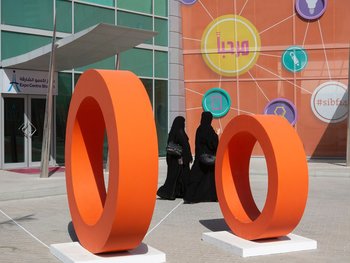National employment centers are vital to enabling youth to take ownership of their future
- We gathered representatives from 20 leading institutions to discuss the critical role of career guidance in addressing youth unemployment
- In the region, career counseling has proceeded as an unregulated field to the detriment of young graduates
While some Arab institutions have robust tools for ascertaining the effectiveness of programming and post-graduation employment of students, the majority of institutions have informal processes that are insufficient for measuring success and adapting services.
Tahseen Consulting, one of the Arab Region’s fastest growing education and public policy consulting firms, hosted a workshop on strengthening the monitoring and evaluation capabilities of national employment and university career centers. The one-day workshop gathered national employment and university career center managers to improve the ability of institutions to internally review and adapt career programming to better meet the needs of Arab youth and employers.
We launched a $10mn initiative to establish a world-class academic institution.
Learn about our Public Sector Strategy and Executions services here.
Representatives from 20 leading institutions advocating more effective methods of evaluating student participation in career services, employer participation, and student career outcomes discussed cooperating to address regional youth employment. The goal of the workshop was to enhance the capabilities of participating institutions to implement formal monitoring and evaluation processes.
Many institutions in Arab countries which serve youth and the unemployed do not provide sufficient career counseling to help beneficiaries make informed decisions about their education and employment paths. In the region, career counseling has proceeded as an unregulated field.
Walid Aradi, Chief Executive Officer of Tahseen Consulting, states; "Career counselors need to understand the dynamics of the labor market and labor market trends to successfully advise students. This will require both better trained career counselors as well as institutional adoption of more rigorous monitoring and evaluation approaches.”
The role of career counseling in the Arab region has evolved significantly in recent years. However, Tahseen Consulting’s research has found that career guidance in Arab institutions is often not distinguished from psychological counseling, is occasionally provided by teachers alongside teaching duties, and is primarily focused on college admissions rather than career guidance. At the high school level, career counselors are critical in helping students discover their interests and workplace values, research potential careers, and outline the necessary steps to pursuing certain careers.
In universities, career centers help students make contacts with potential employers and access experiential training opportunities.
Across the region, national employment centers are vital to enabling the unemployed to take ownership of their future through their own efforts. “Based on international experience in OECD countries, all secondary and post-secondary institutions should have career guidance services to help Arab youth access information and explore career options,” said Wes Schwalje, Chief Operating Officer of Tahseen Consulting.
Across the region, career counselors often lack detailed information on labor market forecasts to suggest emerging career tracks which are in line with economic growth and government development plans.
The workshop addressed five key topics related to monitoring and evaluating national employment and university career centers:
The Role of Monitoring and Evaluation in Employment and Career Centers: The workshop brought together experts to discuss how monitoring and evaluation can allow institutions to manage programs more effectively, promote institutional learning, communicate impact, and build credibility with employers.
How Employment and Career Centers Can Help Youth Overcome Typical Employment Challenges: In recent years, research on defining particular labor market issues that confront Arab youth has increased. This research allows national employment and university career centers to adopt more tailored approaches to address youth unemployment challenges in the region.
The Role of National Employment Centers and Career Advisory in Supporting Economic Development: Providing accessible information on educational requirements and career pathways can track students into in-demand fields associated with national economic development ambitions. Good quality information about opportunities for scholarships and career options can also help change attitudes towards private sector employment and increase the image of particular industries outside the public sector.
Defining Appropriate Indicators to Assess Services and Outcomes: Employment and career center administrators must move beyond assessments that focus exclusively on student placement information for marketing and PR purposes to more formally and rigorously assess the quality of service provision.
Data Collection Instruments for Institutional Learning: Improved quantitative and qualitative approaches can help national employment and university career centers better understand how their activities affect employment outcomes and employer engagement.
A presentation on the main topics addressed in the workshop is available at:
http://www.tahseen.ae/r&imonitoringcareercenters.html#header












































